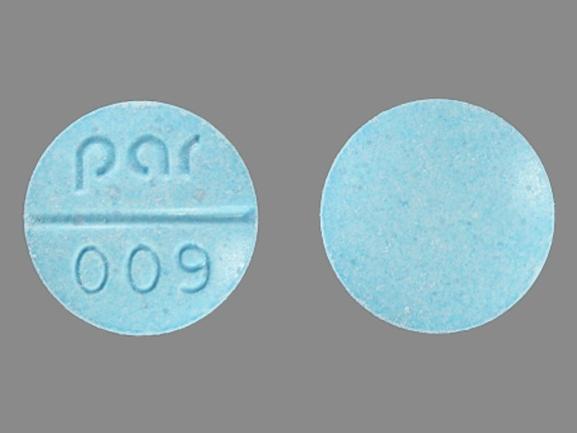Isosorbide Dinitrate Side Effects
Medically reviewed by Drugs.com. Last updated on May 15, 2024.
Applies to isosorbide dinitrate: capsule extended release, tablet, tablet extended release.
Precautions
If you will be taking this medicine for a long time, it is very important that your doctor check your progress at regular visits to make sure that this medicine is working properly. Blood tests may be needed to check for unwanted effects.
Do not take avanafil (Stendra®), riociguat (Adempas®), sildenafil (Viagra®), tadalafil (Cialis®), or vardenafil (Levitra®) while you are using this medicine. Using these medicines together may cause blurred vision, dizziness, lightheadedness, or fainting. If you are taking these medicines and you experience an angina attack, you must go to the hospital right away.
This medicine may cause headaches. These headaches are a sign that the medicine is working. Do not stop using the medicine or change the time you use it in order to avoid the headaches. If you have severe pain, talk with your doctor.
Dizziness, lightheadedness, or faintness may occur, especially when you get up quickly from a lying or sitting position. Getting up slowly may help.
Dizziness, lightheadedness, or fainting is also more likely to occur if you drink alcohol, stand for long periods of time, exercise, or if the weather is hot. While you are taking this medicine, be careful to limit the amount of alcohol you drink. Also, use extra care during exercise or hot weather or if you must stand for long periods of time.
Do not stop using this medicine without checking first with your doctor. Your doctor may want you to gradually reduce the amount you are using before stopping it completely.
Serious side effects
Along with its needed effects, isosorbide dinitrate may cause some unwanted effects. Although not all of these side effects may occur, if they do occur they may need medical attention.
Check with your doctor immediately if any of the following side effects occur while taking isosorbide dinitrate:
Rare side effects
- bluish-colored lips, fingernails, or palms
- dark urine
- difficulty with breathing
- dizziness or lightheadedness
- fever
- headache
- pale skin
- rapid heart rate
- sore throat
- unusual bleeding or bruising
- unusual tiredness or weakness
Incidence not known
- arm, back, or jaw pain
- blurred vision
- chest pain or discomfort
- chest tightness or heaviness
- confusion
- dizziness, faintness, or lightheadedness when getting up suddenly from a lying or sitting position
- fainting
- fast or irregular heartbeat
- sweating
Get emergency help immediately if any of the following symptoms of overdose occur while taking isosorbide dinitrate:
Symptoms of overdose
- blurred or loss of vision
- bulging soft spot on the head of an infant
- change in consciousness
- change in the ability to see colors, especially blue or yellow
- cold, clammy skin
- convulsions
- disturbed color perception
- double vision
- fast, irregular, pounding, or racing heartbeat or pulse
- feeling of constant movement of self or surroundings
- halos around lights
- headache, severe and throbbing
- increased sweating
- loss of appetite
- loss of consciousness
- nausea
- night blindness
- overbright appearance of lights
- paralysis
- sensation of spinning
- slow heartbeat
- tunnel vision
- vomiting
See also:
For healthcare professionals
Applies to isosorbide dinitrate: oral capsule extended release, oral tablet, oral tablet chewable, oral tablet extended release, sublingual tablet.
General adverse events
The most common side effect was headache.[Ref]
Nervous system
- Frequency not reported: Headache, dizziness, syncope, lightheadedness[Ref]
Cardiovascular
- Common (1% to 10%): Decrease in blood pressure and/or orthostatic hypotension with reflex tachycardia and symptoms/signs of cerebral ischemia (including drowsiness and dizziness and weakness) with first time use and when the dose is increased
- Uncommon (0.1% to 1%): Marked decreases in blood pressure with an aggravation of symptomatic angina pectoris, collapse associated with bradycardia and cardiac rhythm disturbances
- Frequency not reported: Pallor, crescendo angina, rebound hypertension, hypotension[Ref]
Other
- Common (1% to 10%): Peripheral edema in patients treated for left ventricular failure[Ref]
Dermatologic
- Uncommon (0.1% to 1%): Allergic skin reactions
- Very rare (less than 0.01%): Exfoliative dermatitis/Stevens-Johnson Syndrome or angioedema
- Frequency not reported: Cutaneous vasodilation with flushing, excessive perspiration, rash[Ref]
Gastrointestinal
- Uncommon (0.1% to 1%): Nausea and vomiting
- Frequency not reported: Heartburn[Ref]
Endocrine
- Very rare (less than 0.01%): Pituitary apoplexy in patients with undiagnosed pituitary tumors[Ref]
Ocular
- Very rare (less than 0.01%): Angle closure glaucoma[Ref]
Respiratory
- Very rare (less than 0.01%): Alveolar hypoventilation with consequent hypoxemia and the risk of developing a myocardial infarction in patients with coronary heart disease[Ref]
Hematologic
- Frequency not reported: Methemoglobinemia, hemolytic anemia in patients with glucose-6-phosphate dehydrogenase-deficient syndrome[Ref]
Psychiatric
- Frequency not reported: Restlessness[Ref]
References
1. (2002) "Product Information. Isordil (isosorbide dinitrate)." Wyeth-Ayerst Laboratories
2. Cerner Multum, Inc. "UK Summary of Product Characteristics."
3. Cerner Multum, Inc. "Australian Product Information."
More about isosorbide dinitrate
- Check interactions
- Compare alternatives
- Pricing & coupons
- Reviews (10)
- Drug images
- Dosage information
- During pregnancy
- Drug class: antianginal agents
- En español
Patient resources
- Isosorbide dinitrate drug information
- Isosorbide Dinitrate Extended-Release Capsules and Tablets
- Isosorbide Dinitrate Tablets
Other brands
Isochron, Isordil Titradose, Dilatrate-SR, IsoDitrate
Professional resources
Other brands
Isordil, Isordil Titradose, Dilatrate-SR
Related treatment guides
Further information
Isosorbide dinitrate side effects can vary depending on the individual. Always consult your healthcare provider to ensure the information displayed on this page applies to your personal circumstances.
Note: Medication side effects may be underreported. If you are experiencing side effects that are not listed, submit a report to the FDA by following this guide.

